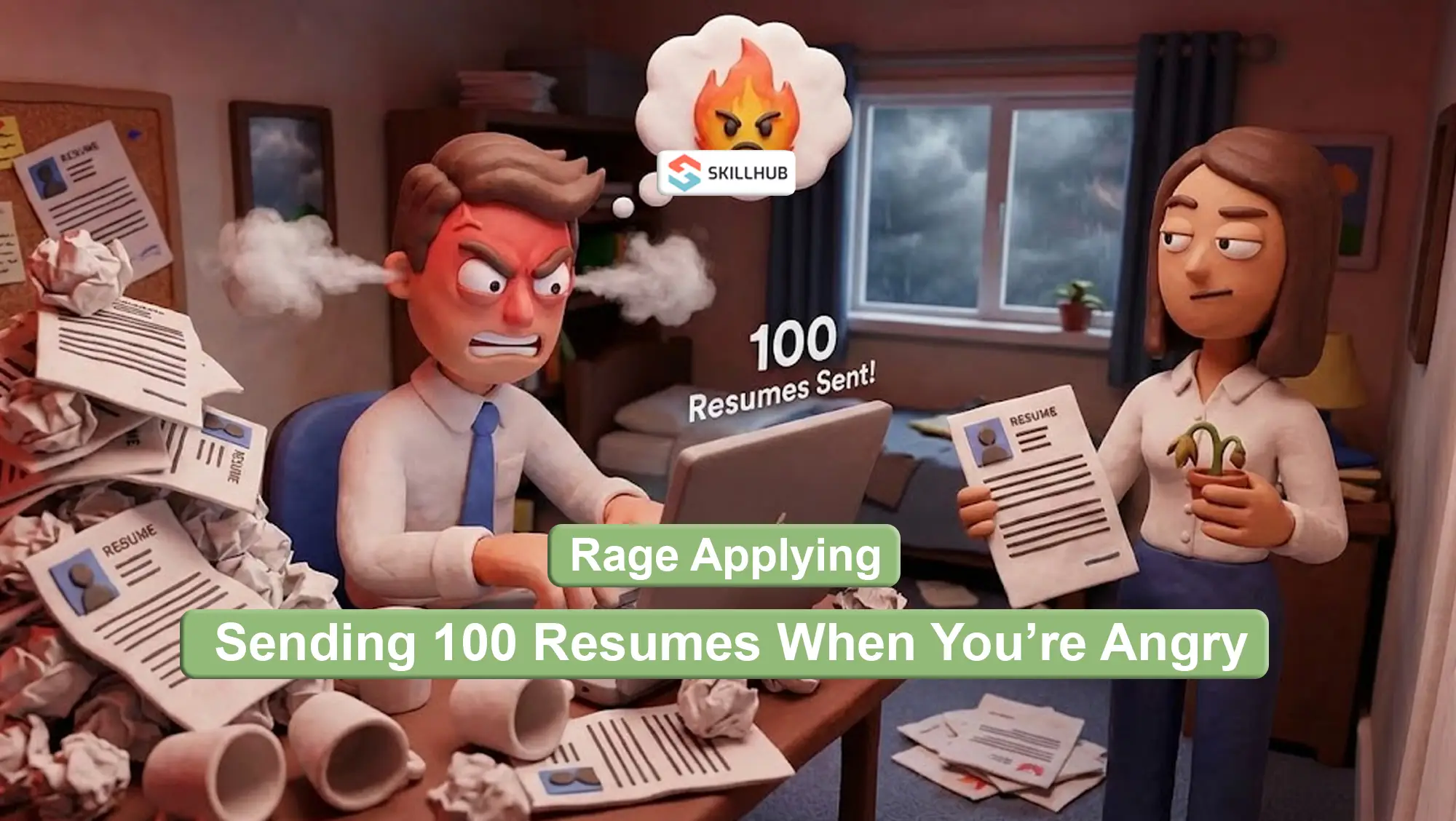Everything You Need to Do to Become a Successful Freelance Professional

Over the past few years, freelancing has become the new global trend. Everyone has fallen in love with remote work and freelancing. More and more employers are quitting their nine-to-five jobs to become freelancers and enjoy the flexibility it allows. If you’d like to join them and are wondering how to be a successful freelancer, we have everything you need to know, including:
- The pros and cons of being a freelancer like article writer, blog writer, content writer;
- The steps you’ll need to take to become one;
- Helpful tips that’ll help you succeed in freelance work;
- Advice on how to manage your relationships with clients;
- Best places to start your job searching as a freelancer, and more.
Benefits and Drawbacks of Freelance Work
The complete list of benefits that freelancers provide is long, and it also depends on what you do and your priorities. Here are just a few of them:
- Freelancers’ schedule is flexible. The number one reason overworked employees are looking for the answer to how to become a successful freelancer is the desire to have more control over their schedule. Freelance work makes it possible.
- Freelancers can work from wherever they like. Would you like to write articles from a beach house in the Bahamas? Become a freelancer, then.
- You can start a successful career without much work experience or professional accomplishments. As long as you have a strong portfolio (which doesn’t take much time to build), most clients don’t care about your education or career achievements.
- You can easily try yourself in as many roles as you like. Tired of copywriting? Switch to freelance photography. Want to work with people yet still be a freelancer? Consider getting certified as a career advice expert. Freelance work is all about exploring different job opportunities. Also, when handling contracts or agreements, make sure to sign PDF files online with ease, whether applying your e-signature or including other signers.
- You can have a great income as a freelancer.
Still, being a freelancer has its drawbacks, too. You don’t have much job security (and, therefore, financial security) until you build a large client base and become a very sought-after expert. Also, there’s always a risk of forgetting about a healthy work-life balance and starting to work whenever your clients want you to. It’s a pitfall that has cost a lot of freelancers their quality of life.
How to Succeed in Freelancing
If you’ve weighed all the pros and cons and concluded that freelance work is indeed what you want, it’s time to get down to business. The best way to start is to get professional help or advice from people who’ve already succeeded as freelancers. That’s what we’re here for. Whether you're looking to start your journey or hire real estate freelancer for your next project, our tips will guide you toward success. They are based on insights from people who are already thriving in freelancing.
Find Out What You Have to Offer
You can’t possibly become a successful freelancer without having the skills you can monetize or at least being ready to learn such skills. It can be anything—writing, translation, photography (editorial sports photography is in high demand), design, website development; you name it. Even if it’s something less conventional (say, voice-over work or meal plan development), you’ll still be able to find enough clients.
Some established freelancers argue that having a less ordinary monetizable skill is far more profitable than doing what everyone does. Fewer people may be looking for someone to develop cake recipes for them than for translators, but there are also fewer recipe developers than translators on freelancing platforms. Being a niche freelancer can help you avoid competition. You won’t need to worry about a hundred other freelancers with the same skillset as you when applying for a job.
That being said, common “freelance able” skills are also a great answer to the question of how to become a successful freelancer. Sure, competition might be challenging. But if you’re really good at what you do, you shouldn’t fear it. Let your skills (showcased in your carefully built portfolio) speak for themselves.
Analyze the Market Before Setting Your Prices
As a beginner freelancer, you’ll probably have to complete the first few orders for a lower fee than you’d like to. That’s perfectly okay. Treat those orders as a chance to develop a good portfolio and earn positive reviews from clients. Later, they’ll work for you—and you won’t need to worry about having enough work.
But once you have a portfolio and enough client reviews, raise your hourly rate or fee to match the market level. When asked how to become a successful freelancer, most freelancers say it’s counterproductive to ask for too little or too much money. Instead, do thorough company research, look at established freelancers’ job applications (for example, when they’re applying for the same project as you on a freelancing platform), and adjust your rate.
A lot of beginners believe that lowering their prices will attract clients. While they aren’t wrong, the kind of clients such an approach will bring you aren’t the kind of clients you want to have. Respectful, responsible, and fair clients look for the most relevant person to complete their orders competently. Avoid working with penny pinchers.
Expand Your Online Presence
Another essential item on the list of helpful tips to become a successful freelancer is to maximize your online presence. Upwork may be the first place most clients go to find a freelancer, but it’s not the only one. And some clients avoid it because the quality of the work there isn’t always the best. For freelancers in countries with restricted internet access, such as Iran, using a VPN for Iran can be essential to reach these global freelancing platforms. A reliable VPN, like the ones tested by VPNPro, ensures you can access Upwork, Fiverr, Skillhub, and other international sites without interruptions or regional blocks. Pairing this with a static IP internet connection can further enhance stability, provide consistent access, and build greater trust with clients who value secure and reliable connectivity. To further protect your online sessions and sensitive client data, consider pairing your VPN with a secure web gateway, which filters malicious content and prevents data leaks while you work and communicate with clients.
For freelancers, the rule of thumb is that the easier it is to find you online, the more likely you are to get hired. In addition to being registered on freelancing platforms, you need a regularly updated LinkedIn profile with a perfect resume and professional social media profiles (for example, an aesthetically pleasing Instagram if you’re a photographer). Make it easy for clients to find and get to know you a little. A carefully curated online presence is a great way to invest in your career. To further boost your visibility and showcase your expertise, consider repurposing content across different platforms. For instance, if you’ve participated in a podcast, webinar, or interview, you can translate audio files with Happy Scribe and turn them into blog posts, LinkedIn articles, or website content. You can also integrate webinar automation to streamline how you host, manage, and repurpose your sessions for ongoing engagement. Say you’ve recorded a tutorial, vlog, or interactive product demo - Movavi makes it easy to polish your video and share it across multiple platforms. To make your content even more engaging, you can incorporate interactive video elements that allow viewers to participate directly. This not only highlights your experience but also increases your reach online.
Still, don’t forget about freelancing platforms, such as:
- Skillhub. Skillhub is an excellent platform for writers, editors, and translators. If these are the skills you have and monetize, Skillhub should be your go-to place. You’ll have a steady flow of orders and a decent income there (which isn’t always the case on marketplaces akin to Upwork).
- Upwork. Upwork is the biggest freelancing platform, so having an account is a must for every freelancer.
- Fiverr. Fiverr is smaller than Upwork, and freelancers’ average rates are lower. But many clients prefer it, so consider registering there as well.
Other freelancing platforms exist, such as PeoplePerHour, Toptal, Jooble, Guru, and so on. Selecting a couple you like the most (and that match your skillset) will further expand your online presence.
Ensure Clarity of Expectations
Unless you’re finding clients on Skillhub copywriting service or another platform that protects you from fickle and dishonest clients, starting every new project with a freelance contract is a good idea. It’s a legal document that ensures you’ll meet the client’s expectations (thoroughly discussed and explicitly stated in the agreement), and the client will pay you.
Contacts with clients should become standard for you when you become a freelancer. Too many clients like to change their requirements after you’ve already done most of the work and demand you to redo everything for free. Some disappear for a week and then cut the deadline they’d initially set in half.
Protecting yourself from such clients is part of the science of how to be a successful freelancer. As a freelancer, you’re still a laborer, meaning you have labor rights. Since freelance is notoriously underregulated, you must take matters into your own hands. It’ll save you many disappointments, time, and money. And don’t worry about clients’ reactions: the good ones welcome contracts and will happily sign one. Another key step in protecting yourself is setting up a formal business structure, such as forming an LLC with the help of a registered agent. An LLC helps separate your personal assets from your freelance income and can offer tax advantages. It can also make it easier to generate freelancer proof-of-work docs when you're asked to verify your income or employment status. Many clients actually prefer working with freelancers who treat their work like a real business.
Keep Your Clients Updated on the Progress
How many clients and projects a freelancer has is an indication of how successful is freelancer in what they do. Once you build a client base, you will no longer worry about having enough work. Your new problem will be juggling your 101 responsibilities without forgetting about clients and deadlines.
But no matter how busy a freelancer is, they should never neglect to keep their clients updated. Clients are often worried about the work they hired you for. Even more so if hiring a freelancer isn’t something they do regularly or if it’s their first time working with you. You invest in your relationship with them by updating them on the progress from time to time (without waiting for them to ask).
In turn, a mutually respectful and otherwise good freelancer-client relationship is one of the pillars of a successful freelancing career. When you work as a freelancer, you might not be employed in the traditional sense, but the client is still your employer—and soft skills, including communication, matter even in freelance. Investing in a relationship with them leads to future projects and success.
Always Ask for Reviews and Referrals
Reputation is everything for a freelancer. Research shows that the first thing clients check when looking for a freelancer and weighing their hiring decisions isn’t the freelancer’s portfolio. It’s their reviews. Even one bad review from a disgruntled client can take a toll on your rating and employment prospects.
So ask the clients who are happy with the job you’ve done to leave reviews. Most are too lazy or forgetful to do so without a reminder. Also, once you have a more or less established relationship with a client, ask them to refer people to you. Referrals will multiply your projects and help you make a name for yourself in your industry. You’ll become a freelancer who is always in demand.
A Great Platform for Your Freelance Success
If you’re a writer, editor, or translator, consider making Skillhub your go-to platform. As you already know, the freelancing platforms you use affect your freelance success. Not all of them protect your interests and ensure that clients treat you fairly. Skillhub does. So if your industry is writing business, Skillhub is a fantastic place for you to build a thriving career as a freelancer.
What’s more, if you join Skillhub, you won’t have to worry about having enough work. It’s an established platform with a large base of loyal clients. You’ll have a steady stream of promising projects that match your skills and qualification. Seeing how rare a sense of job security is in the freelance world, it’s worth a lot.
Key Takeaways
If you’ve been thinking of becoming a freelancer for a while, do it. You may miss job security and your colleagues, but the benefits of freelancing far outweigh the drawbacks. You’ll get to do what you love and ultimately control where, when, and how much you work. It’s very empowering.
Also, once you become a successful freelancer and build a client case, you won’t need to worry anymore. You’ll always have a good freelance job and a reliable income. But to get there, follow our tips—set a reasonable hourly rate, expand your online presence, sign contracts with clients, and invest in relationships with them.
%20(1).png)



%20(1).webp)